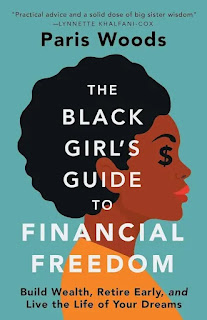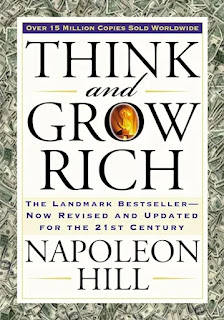In this summary, I'll be exploring nine books that offer valuable insights and practical advice on how to achieve financial growth. These books cover a range of topics from personal finance to wealth creation, making them essential reads for anyone looking to improve their financial situation.
1. The Richest Man in Babylon by George S. Clason

This book covers a wide range of personal finance topics that are ideal for Canadians looking to improve their financial literacy. From setting financial goals to creating a budget, from understanding credit to making wise investment decisions, this book provides practical advice in accessible language. It's an essential guide for anyone looking to take control of their financial future.
A great resource for personal finance for young adults who are just starting to manage their money. It covers everything from creating a budget to understanding credit, from investing for the future to building a savings habit. The author, Suze Orman, is a financial expert who breaks down complex financial concepts into easy-to-understand advice.
I first learned about Suze from the Oprah Winfrey Show in the late 90's - early 2000's and purchased her book then (not this one - I misplaced it). I think her financial sense is unmatched.
This is a treasure trove of insights and perfectly tailored to empower Black women and help them navigate the tumultuous waters of personal finance. Woods breaks down complex financial concepts into easily digestible advice, making the journey to financial independence feel not just attainable but genuinely exciting.
One of the standout aspects of this guide is how it intertwines financial education with cultural relevance. Woods doesn’t just offer generic advice; she acknowledges the unique challenges and systemic barriers that Black women may face.
By doing so, she creates a space where readers feel seen and understood, fostering a sense of community and support. This isn’t just about dollars and cents; it’s about reclaiming autonomy and crafting a future that reflects one's true aspirations.
I have not yet read this book, but I have skimmed it online and intend to read it. I think it is an essential read as her advice is particularly tailored and relevant for Black Women, regardless of age, location, race, or religion. It emphasizes building wealth and retiring early by strengthening your financial knowledge and skills to achieve financial independence.
This classic book, first published in 1937, outlines the steps to achieving financial success. Napoleon Hill, a renowned author and thought leader, draws on the experiences of over 500 millionaires to provide a practical guide to wealth creation.
The book also delves into the power of desire, faith, and persistence in achieving one's goals.
Most people are familiar with this one, but if you haven't yet read it you should. It is a profound read.
In this book, Dave Ramsey, a personal money management expert, offers a simple yet powerful strategy for achieving financial success. He emphasizes the importance of setting clear financial goals, creating a budget, and developing good money habits. The 'baby steps' approach, as he calls it, involves making small, manageable changes in your financial behaviour that can lead to significant improvements over time.
Robert Kiyosaki, the author of the bestselling book 'Rich Dad Poor Dad,' shares his experiences of growing up with two influential figures in his life - his real father (Poor Dad) and the father of his best friend (Rich Dad). Through their contrasting philosophies about money, Kiyosaki learned valuable lessons about wealth creation and financial independence. This book is not just about money, but also about the mindset and financial habits that can lead to success.
Kiyosaki offers a practical guide to financial freedom in this book. He provides a step-by-step approach to building wealth, debunking common myths about money, and outlining the mindset required for financial success. This book is a must-read for anyone looking to change their relationship with money and build a secure financial future.
Dennis Kimbro, a bestselling author and expert in personal development, profiles the lives of some of America's wealthiest African Americans in this book. He explores their mindset, strategies, and the key principles of creating wealth, offering valuable insights and inspiration. The book also delves into the history of wealth creation in the African American community and provides practical advice on how to overcome the unique challenges faced by African Americans in their pursuit of financial success.
David Bach, a financial advisor and bestselling author, believes that it's never too late to take control of your finances and build a secure future.
In this book, he outlines a 'finish rich' plan for late starters, offering practical advice on how to save, invest, and build wealth.
Bach stresses the importance of setting clear financial goals, creating a budget, and developing good money habits.
Conclusion
I have personally read six of the nine books in this post. I believe these nine books offer valuable insights and practical advice on achieving financial growth if taken seriously. Whether you're just starting to take control of your finances or looking to enhance your financial literacy, these books can guide you on your journey to financial success.
You can challenge traditional notions about financial success. With the right mindset and strategies, late starters can catch up and even surpass those who started early. These books provide practical advice on how to set financial goals, create a budget, and develop good money habits, by taking action and staying committed.
Please let me know your thoughts in the comments. I would love to know if you have read any of them of them and any insights you can share with is audience. Thank you in advance.
The author
Acknowledgment: AI promptss were used to improve this post.











.jpg)
Comments
Post a Comment
Please be reasonable and respectful. Thank you.